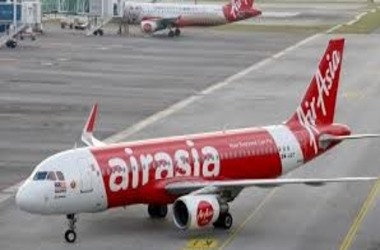
The network, unveiled yesterday, permits exporters and freight forwarders to book on a real-time basis AirAsia’s aircrafts, totaling 247 in number, to move cargo.
Freightchain designates shippers and their freight forwarders to cargo carriers in order to simplify supply chain requirements, and pave way for instantaneous bookings which are handled on-chain.
The venture’s chief technology officer, Vishal Batra, detailed that the network has been designed with the aim of supporting businesses during epidemic. Batra said:
“We deliberately launched Freightchain during this period of uncertainty within global supply chains, caused by the coronavirus pandemic. Agile software platforms like Freightchain help to connect uneven supply and demand amidst a rapidly evolving environment. Trust and transparency are needed now more than ever.”
The Freightchain network has already undergone trial when pharmaceutical items were exported from Bengaluru (India) to Ulan Bator (Mongolia).
As there are no direct flights available from Bengaluru to Ulan Bator, the consignment had to move via Kuala Lumpur, Malaysia and Seoul, South Korea.
Using a blockchain based smart contract, the booking process was carried out in real-time with aircrafts from three distinct carriers.
In a conventional system, the shipper has to manually check the likelihood of connecting flights with several airlines and their agents.
Usually, this necessitates spending a lot of time on emails and phone calls. The latest platform supposedly offers better efficiency in terms of processing speed and the quantum of work carried out.
“Freightchain simplified the booking process and confirmed the itinerary 10 times faster for shippers by programmatically discovering the available routes with connecting flights within the shipper’s budget and passing on significant cost savings to shippers. For the airlines, the dynamic on-demand interlining of flights helped improve otherwise underutilized flights.”
The use of distributed ledger has made the process of managing supply chain a relatively simple task.
Notably, the World Economic Forum has recently underlined that blockchain technology can assist in resolving global supply chain issues.
In the meantime, the implementation of blockchain in logistics sector is happening at an increasing pace.
For example, in mid-March, Chinese e-commerce company Alibaba stated that Koala, an e-commerce platform catering to imports, is utilizing a blockchain powered product tracking system.